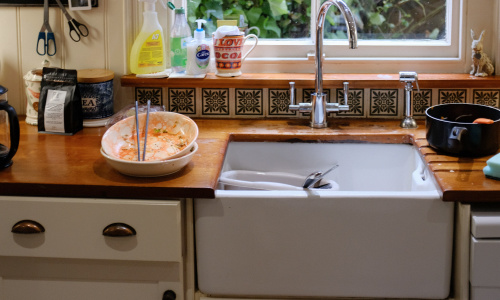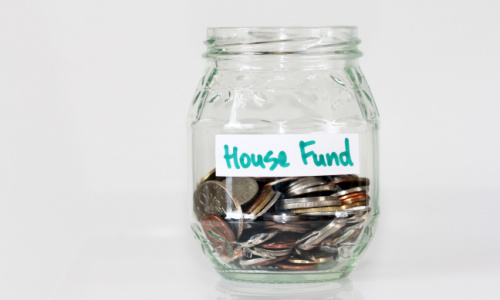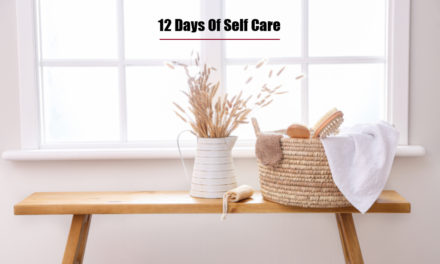In this post: Did you know that the practice of self care is broken down into different aspects? As a matter of fact, there are 8 areas of self care, reinforcing the point that taking care of yourself is not a luxury but it’s a necessity. Let’s dive in.
There was the soft hum of pitter-patter on my window. Outside it was as if the earth itself was stretching and yawning, shaking off the remaining bits of slumber.
For a moment I just lay there in the soft embrace of my bed, with my eyes closed.
It was as if the universe was urging me to pay attention, coaxing me to reflect on my life and to take care of myself in ways I hadn’t for far too long.
As we all know, there are only so many hours in the day. And if you’re like most people you spend a lot of them on tasks filled with demands, responsibilities, and an ever-growing to-do list.
In the midst of all this daily hustle, you often forget something critical: yourself. There’s little or no time for the important things for you, like regular checkups with doctors, catching up with friends, or just having fun among other things.
So how do you make sure that the 8 areas of self care get taken care of too?
Table of Contents
Why Is Self Care Important?

Whether you know it or not, self-care is one of the most important aspects of your life. But it’s often the first thing to go when you’re feeling overwhelmed.
Neglecting to take care of yourself can be detrimental to your mental and physical health, so it’s crucial that you make time for self-care every day.
Here are some reasons why self care is important:
Physical Health
- Helps maintain good physical health and well-being.
- Reduces the risk of burnout, exhaustion, and illnesses caused by stress.
- Promotes healthy habits such as exercise, a balanced diet, and adequate sleep.
Mental Health
- Fosters mental clarity and focus.
- Reduces symptoms of anxiety and depression.
- Promotes emotional resilience.
Emotional Well-Being
- Boosts your self-esteem and self-worth.
- Gives you a sense of control over emotions.
- Helps to foster self-compassion and self-acceptance.
Stress Reduction
- Helps you to manage and reduce stress.
- Provides relaxation.
- Boosts your ability to handle life’s challenges.
Increased Productivity
- Improves concentration and creativity.
- Increases problem-solving and decision-making skills.
- Leads to better time management.
Balanced Relationships
- Encourages healthy boundaries in relationships.
- Improves communication and conflict resolution.
- Prevents burnout and allows for more meaningful connections.
Personal Growth
- Encourages self-discovery and self-improvement.
- Nurtures your sense of purpose and meaning in life.
- Cultivates a positive outlook on personal development.
Video on: 8 Areas of Self Care
What Are The 8 Areas of Self Care?
Self-care should allow you time and space to do what feels good and right for your body mind and spirit.
There are 8 areas of self care which include physical, mental, social, emotional, professional, spiritual, environmental, and financial.
It’s time to stop and think about how you want to be. What will your life look like? How will you feel? How can you make a difference in your relationships, work, health, and more? It all starts with self-care.
Taking care of yourself isn’t selfish, it’s necessary if you want to achieve anything meaningful in this world.
And while some people might focus on making others happy first before they take care of themselves, research finds that you need to prioritize your own happiness.
When you take care of yourself first whether it’s getting enough sleep, or eating healthier foods, then you’re able to do more for other people as well.
Here are the 8 areas of self care you should focus on:
1. Physical Self Care

Physical self care is taking care of your body and is essential to maintaining your health and well-being. It’s a crucial part of your life even though you might often put it on the back burner.
Here’s the thing, neglecting your own needs can lead to physical and emotional stress. There are many ways to practice self care, and it doesn’t have to be expensive or time-consuming.
Being physically active is an incredible way to feel good and it’s also a great tool for managing stress. Not to mention it has countless other benefits as well.
Practical Strategies For Physical Self Care
Here are some different types of physical self care activities:
- Regular exercise
- Eating healthy foods
- Getting enough sleep
- Staying hydrated
- Maintaining good hygiene and grooming
- Seeking medical care as needed
2. Mental Self Care

Mental self care is the practice of taking care of your mental health and well-being. This is important for everyone, but it’s especially crucial if you’re prone to stress or anxiety.
This means engaging in activities that help you relax and de-stress. It also means seeking professional help if you feel like you need it.
If you experience a lot of stress or anxiety then you’re at an increased risk for developing mental health disorders.
Boost Your Mental Health
These are some ways to boost your mental health:
- Unplug from social media and the news on a regular basis
- Practicing positive affirmations
- Talking to a Therapist or Counselor
- Journaling
- Listen to some calming music
3. Social Self Care

When it comes to taking care of yourself, you often focus solely on your physical well-being and overlook the importance of caring for your social health.
This is where social self care comes in. It’s all about nurturing and maintaining healthy relationships with the people around you, including family, friends, colleagues, and even your interaction with strangers.
Social self care involves setting boundaries with toxic relationships, surrounding yourself with positive and supportive people, and making time for meaningful connections.
It’s one of the 8 areas of self care that can help you achieve a more fulfilling life. By prioritizing your social well-being and nurturing those important relationships, it can boost your mood and you’ll create a happier and more balanced life for yourself.
Improve Your Social Connections
There are many ways to socialize and connect with others. Here are some examples of social self care :
- Volunteering
- Meeting up with friends for drinks or coffee
- Going for a hike with family and friends
- Attending events planned by family and friends
4. Emotional Self Care

Emotional self care is an essential aspect of your overall well-being, and you must give it the attention it deserves. This is the nurturing of your emotions and feelings by allowing yourself to feel and address any resulting issues.
When you let yourself feel and experience your emotions, then you can take appropriate actions to release them and start the healing process.
There is no need to worry about others thinking that you’re weak for doing so because not dealing with your emotions can do more harm than good.
Ways To Nurture Your Emotional Well Being
You can nurture your emotional self care by:
- Journaling
- Talking to your friend about your issues
- Taking a nature walk
- Emotional release, allowing yourself to cry if you need to
- Practicing mindfulness
5. Professional Self Care

Professional self care is taking care of yourself as a professional by setting clear professional boundaries whether you work from home or work away from home.
It’s so easy to get carried away with all sorts of tasks, projects and deadlines and put your own needs on the sidelines.
When you neglect your professional self-care, you can end up feeling stressed, fatigued, and overwhelmed. This can lead to decreased productivity, poor work performance, and even job burnout.
Balancing Your Work Life
Examples of professional self care are:
- Don’t take work from the office home with you
- Take a break when you need to.
- Learn to say no
- Reduce distractions during your hours of work
6. Spiritual Self Care

Spiritual self care is the practice of attending to your spiritual needs in order to achieve a sense of balance in your life. It’s when you take the necessary steps to strengthen the connection between God and yourself.
It can provide a sense of meaning and purpose that is difficult to find elsewhere. Research has shown that people who engage in regular spiritual practices tend to experience less stress.
By focusing on this area of self care, you’ll be able to tap into a deeper sense of fulfillment and inner peace.
Spend some time each day in a combination of activities to renew the spiritual aspect of your life. You can use one or a combination of activities that get you in a humble frame of mind.
This provides the opportunity for you to look inward, do some soul-searching, and take a closer look at the intangible things in life.
Fostering Spiritual Growth
Some examples of spiritual self care are:
- Prayer
- Meditation
- Affirmations
- Attending place of worship
7. Environmental Self Care

In today’s world, taking care of yourself has become increasingly important, and so environmental self care is becoming more necessary than ever.
Environmental self care involves any actions and behaviors that you take to improve, the conditions of your space and the wider community.
This includes being mindful of the products you use, how you dispose of waste, and conserving natural resources.
Over time, by focusing on this type of self care the small choices you make can make a big impact. Not only will you help to preserve the environment around you, but you also contribute to your overall well-being.
If you implement a holistic environmental self care practice, you’ll spend less time and money on sick care and more time living your life.
Environmental Self Care Practices
These are sine examples of environmental self care:
- Declutter you space
- Clean up after meals
- Use reusable products when possible.
- Keep your surroundings clean.
8. Financial Self Care

Financial self care involves taking charge of your financial health by being mindful of your spending, creating a budget, and saving money.
This means making sure that you have a solid financial foundation that can help you weather any storm. By practicing good financial habits, you can reduce stress and anxiety, improve your quality of life, and achieve financial freedom.
It may take some time to make the necessary changes, but the results will be priceless. So, start taking care of your finances today, and enjoy peace of mind now and in the future.
Financial Wellness
Here are some examples of financial self care:
- Make a budget
- Manage your debt
- Save for retirement
- Build an emergency fund
- Invest wisely
Conclusion on 8 Areas Of Self Care
Self care is important for everyone, but it can be easy to fall into unhealthy habits or not prioritize yourself when you have so many other things going on in your life.
But if you don’t take the time and energy to recharge, how will you be able to continue living a healthy life?
What areas of self care do you need to work on? Comment below!






















